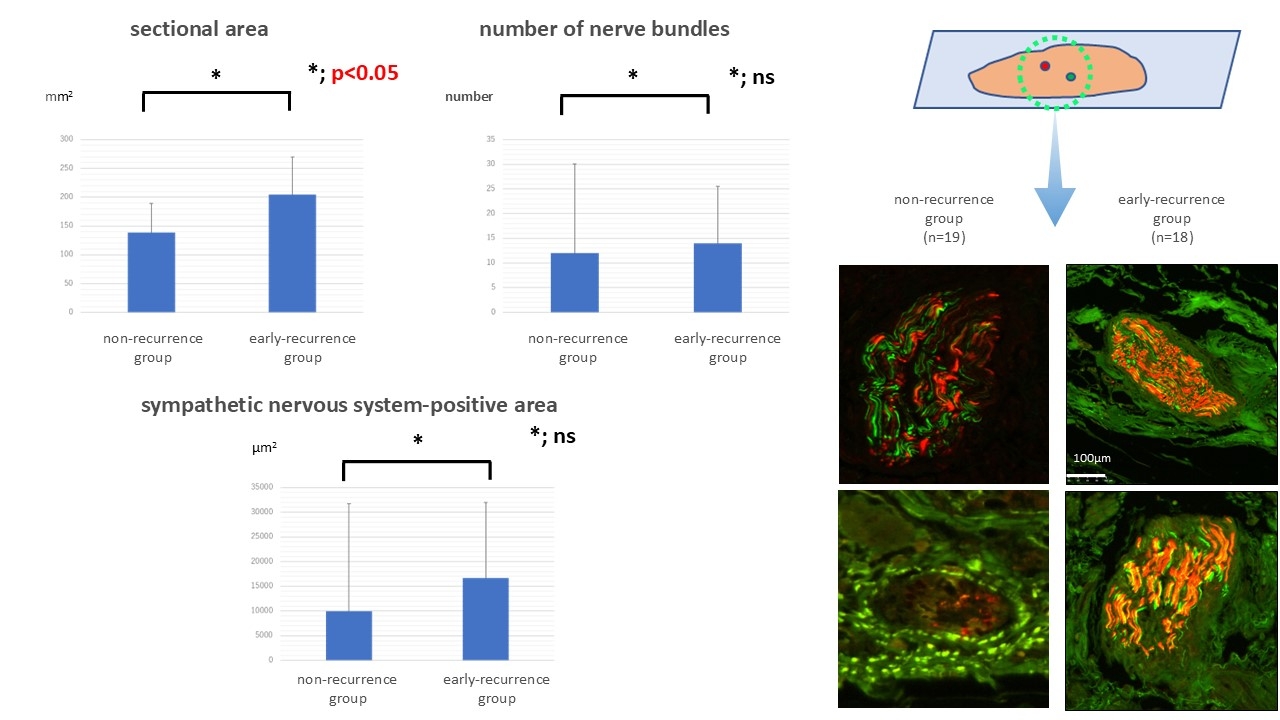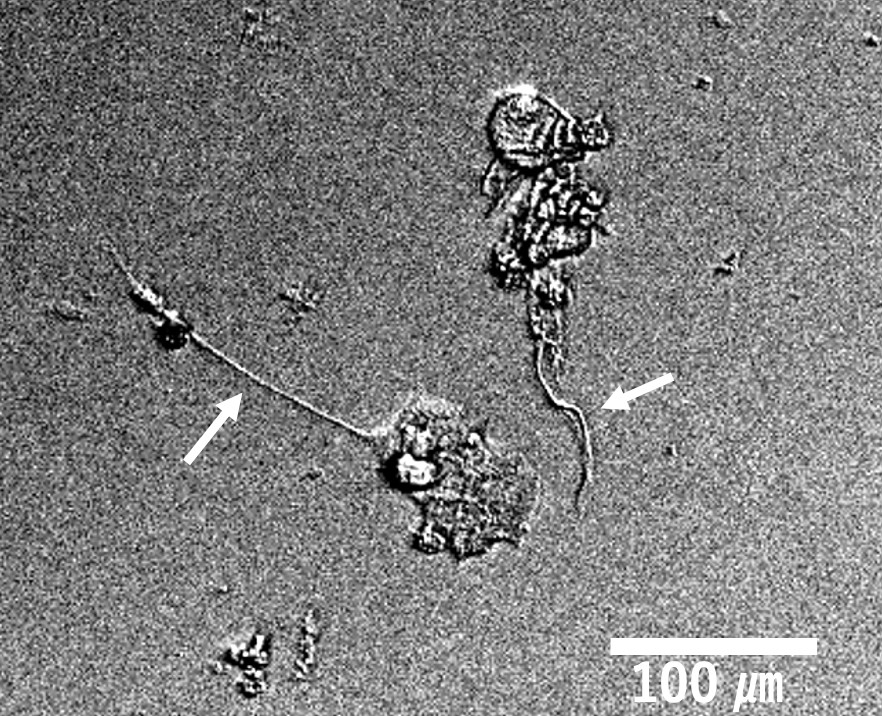Back to 2025 Abstracts
EXPLORING BIOMARKERS FOR EARLY RECURRENCE PREDICTION IN GASTRIC CANCER: A FOCUS ON TUMOTR CELL VESICLE SIGNALING
Kenichi Iwasaki
*1, Ryoko Soya
1, Yuichi Nagakawa
1, Takahiro Ochiya
21Tokyo Ika Daigaku Byoin, Shinjuku-ku, Tokyo, Japan; 2Tokyo Ika Daigaku, Shinjuku-ku, Tokyo, Japan
Background
Early recurrence of gastric cancer after surgery drastically worsens prognosis, yet reliable predictive biomarkers are lacking. Increasing evidence links cancer progression with nerve infiltration, particularly by sympathetic nerves, within tumor tissues. These infiltrating sympathetic nerves could play a crucial role in recurrence and survival outcomes. This study investigates sympathetic nerve components within and around gastric cancer tissues to evaluate their prognostic value. We also examine the effects of tumor-derived exosomes, specifically from varying malignancy grades, on nerve cell differentiation to understand potential tumor-nerve interactions.
Methods
We analyzed 27 cases of gastric cancer patients who underwent curative resection at our institution from January 2015 to December 2019, comprising 15 early recurrence and 12 non-recurrence cases. Resection specimens from both groups were immunostained with sympathetic nerve (TH) and neuronal axon marker (NFL) antibodies. We quantified nerve bundle areas, axonal-positive areas within bundles, and sympathetic-positive regions. Additionally, exosomes from multiple gastric cancer cell lines (MKN45, MKN7, H-111-TC, Kato III) were applied to PC12 neuronal cells to assess impacts on differentiation.
Results
The early recurrence group showed a significantly higher sympathetic-positive area ratio (26.35 ± 21.73%) compared to the non-recurrence group (11.83 ± 15.04%, P = 0.03), suggesting that increased sympathetic nerve infiltration could serve as an early recurrence marker. Additionally, PC12 cells exposed to MKN45-derived exosomes exhibited partial neuronal differentiation, indicating that gastric cancer exosomes might influence sympathetic nerve behavior.
Conclusion
Sympathetic nerve infiltration analysis in resected tumor sections presents a promising approach to early recurrence prediction in gastric cancer. Furthermore, our findings suggest that tumor-secreted exosomes actively promote sympathetic nervous system differentiation, highlighting a potential tumor-nerve signaling pathway that could be targeted in therapeutic interventions.

Comaprison of sympathetic nerve positive area ratio.

Partial neuronal differentiation derived by gastric cancer exosomes.
Back to 2025 Abstracts

